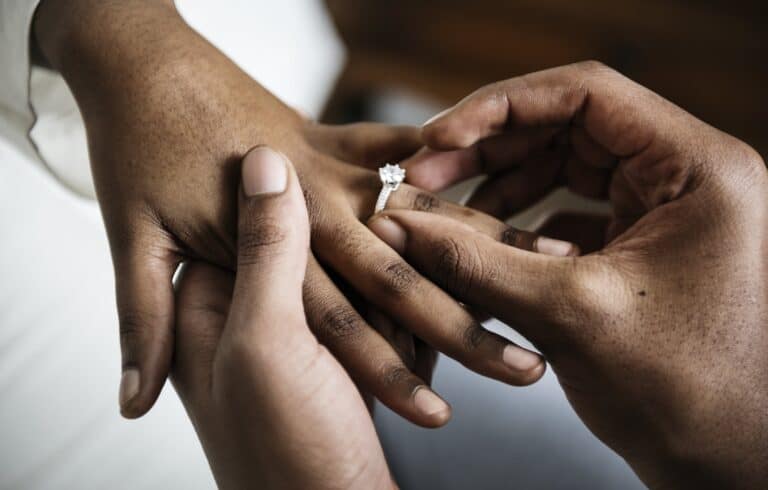Marriage in Burundi is a cultural institution rich in traditions and rituals that mark the various stages of the union between two people. Here's an overview of the main practices surrounding marriage in Burundi: predot, dowry, marriage, gutwikurura, guca mwirembo, and guhekereza.
1. La Prédot
The predot, also known as "gusaba", is the first formal step in the marriage process. It is a ceremony where the groom's family visits the bride's family to officially ask for her hand in marriage. This meeting is marked by metaphorical speeches and verbal exchanges between representatives of the two families. The aim is to demonstrate respect and serious intent before negotiating the dowry.
2. The Dot
The dowry is an unavoidable tradition in Burundian marriage. It represents a set of goods and gifts that the groom's family gives to the bride's family as a sign of respect and recognition. Historically, this included cows, hoes and other material goods. Today, dowries can include money and valuables. Although the dowry is seen as a mark of respect, it can sometimes be a source of conflict when excessive amounts are demanded, putting financial pressure on the groom's family.
3. The wedding
Marriage in Burundi is divided into two parts: civil marriage and religious marriage. The civil marriage is often performed first, to legally formalize the union. This is followed by a religious wedding, usually Catholic, where the bride and groom receive the blessing of the Church. Wedding ceremonies are often accompanied by large parties with dancing, singing and festive meals.
4. Gutwikurura
Gutwikurura was, and still is, considered the final ceremony in the marriage series. The bride's family would visit her in her new home and bring her a number of items to help her settle in. Prior to this, the bride was required not to be seen in public and to refrain from all work. This was due to the shyness or fear the wife felt after her first night with her husband, as she believed that everyone knew about this practice.
5. Guca Mwirembo
This practice, also known as "opening the gate", takes place after the wedding. It's a ceremony in which the newlyweds visit each other's families, and give their parents permission to visit them in their homes too. It involves gift exchanges and formal discussions between the families. This step is essential to maintain the ties between families after the wedding.
6. Guhekereza
In Burundi, the mother who gave birth usually stayed in the house for a week. At the end of the week, there would be a ceremony ( gusohora umwana). It was during this ceremony that the child officially received its name. Old traditions dictated that, on this occasion, the female baby was given a broom to symbolize her future status as aumuzezwanzuthe head of the household. The birth of a child was, and still is, a joyous event for the family. A mother who gives birth receives many gifts, and the event gives rise to successive celebrations around the child, at every stage of growth. This shows just how important children are to Burundian society.
Advantages and disadvantages of traditional practices
Benefits
- Strengthening family ties : Ceremonies such as the predot and the dowry strengthen the ties between the families of the two spouses, creating a close-knit community around the new couple.
- Preserving culture: These traditions preserve and transmit ancestral values and customs, ensuring cultural continuity.
- Respect and recognition : The dowry and associated ceremonies are signs of respect and recognition between families, valuing the contributions of each to the union.
Disadvantages
- Financial pressure : The dowry can impose a heavy financial burden on the groom's family, creating tensions and high expectations.
- Family conflicts : Disagreements over the value of the dowry or the details of ceremonies can lead to conflict between families.
- Modernization and relevance : Some practices are perceived as obsolete or costly, and can be difficult to maintain in a difficult economic context.
Conclusion
Discover Burundi's rich wedding traditions, from predot to dowry, wedding and post-wedding ceremonies.


No Title
The piece is very insightful! I've learnt that traditional wedding celebrations in Burundi are deeply ceremonial and community-centered, with each stage-from gusaba (predot) to guhekereza (post-birth rituals)-serving a symbolic and social purpose. These customs emphasize respect between families, cultural continuity, and the importance of children in society. However, they also face modern challenges like financial strain and evolving relevance. The balance between tradition and adaptation is key to preserving their value in contemporary Burundian life.